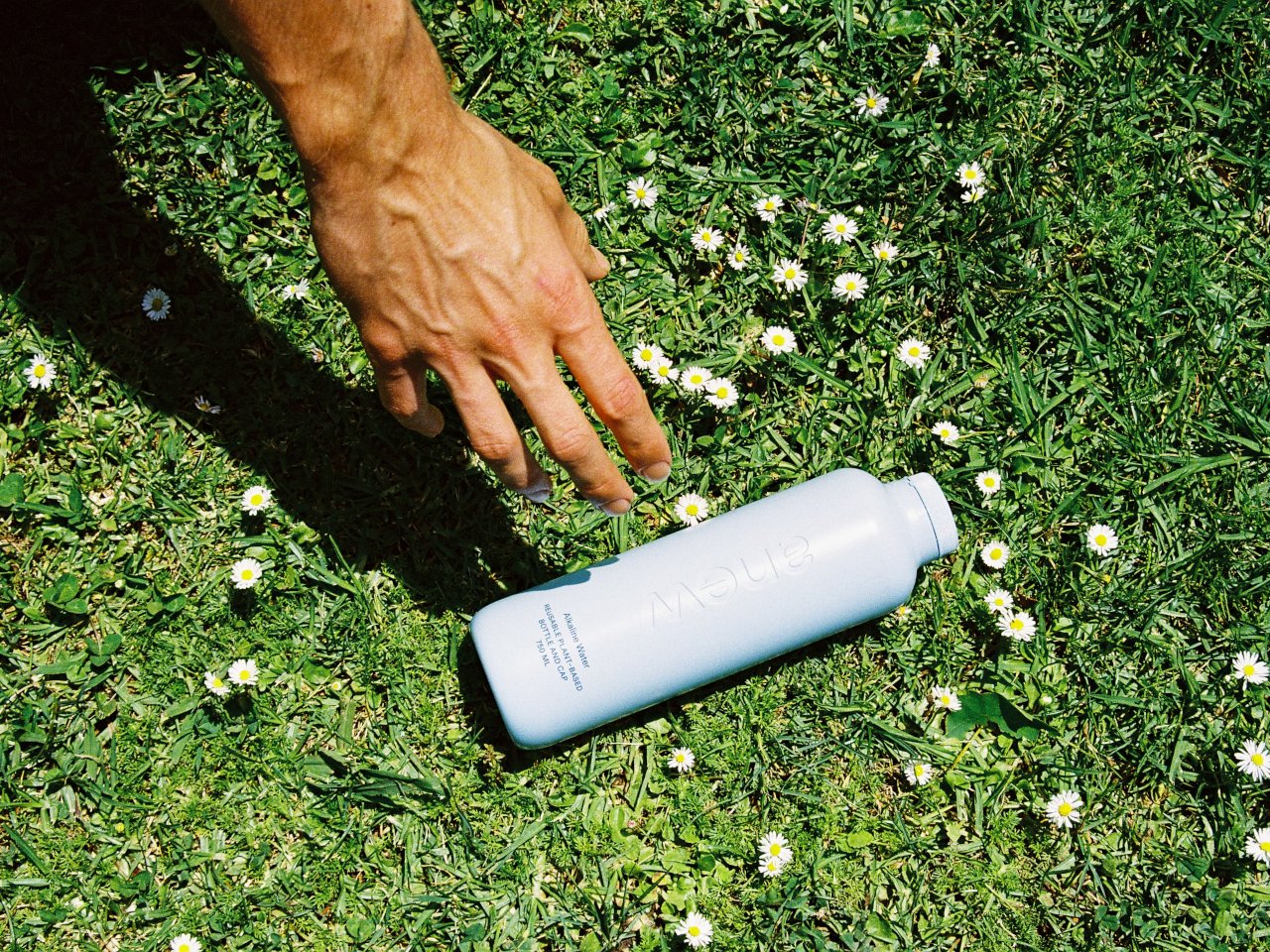We’ve all been there, standing in a convenience store, thirsty and faced with rows of single-use bottles. Glass feels heavy and expensive, aluminum still has plastic linings, and regular plastic bottles make you wonder what chemicals might be leaching into your water. It’s frustrating when even the eco-friendly options come with their own environmental baggage and compromises.
Enter Anew, a New Zealand company that decided to completely rethink what a water bottle could be. Instead of tweaking existing materials or adding green marketing to the same old products, they went back to basics and asked a simple question: what if we made bottles from plants instead of petroleum?
Designer: Jayden Klinac (Founder, Anew)
The result looks and feels exactly like regular plastic, but it’s made entirely from renewable plant materials. The clever part is how these plants actually capture more carbon dioxide while growing than the manufacturing process releases. Every bottle produced removes 0.0765 pounds of CO2 from the atmosphere, making them genuinely carbon negative without any offsetting tricks.
What really impressed me about Anew’s approach is the thoughtful design decisions throughout. The entire bottle uses mono-material construction, meaning both the bottle and cap are made from the same plant-based plastic. No mixed materials that confuse recycling systems, no adhesive labels creating waste, and no compromise on the durability you expect from a quality reusable bottle.
The health benefits are equally compelling, especially given recent concerns about microplastics showing up everywhere in our bodies. Independent lab testing confirms these bottles don’t shed microplastics into your water, unlike many conventional plastic and even glass bottles. They’re also BPA-free, BPS-free, and PFAS-free, with proper food-safe certification under strict international standards.
Anew has created what they call a circular system around their bottles. You can reuse them for years, just like any good reusable bottle should work. When they eventually wear out, they’re fully recyclable in your regular curbside bin alongside standard plastic bottles. The company even offers collection points where returned bottles get recycled into new bottles.
Founder Jayden Klinac spent thirteen years developing sustainable packaging systems before launching Anew. His vision was refreshingly practical: keep all the benefits that make plastic useful while eliminating the environmental downsides. The bottles are lightweight, dishwasher safe, and built to handle daily use without breaking your budget or your back.
The bottles launched this year at Sprouts Farmers Market stores nationwide, filled with premium alkaline water from an ancient artesian source in New Zealand. Priced between eight and nine dollars, they’re positioned as affordable reusable bottles rather than expensive water, giving you an immediate alternative when you need hydration on the go.
When you compare Anew to other bottle materials, the advantages become obvious. Glass bottles have three times the carbon footprint, are heavy to transport, and rely on environmentally damaging sand mining. Aluminum bottles still need plastic linings and require massive energy for production. Traditional plastic comes from fossil fuels and rarely gets properly recycled.
What makes Anew special goes beyond just being another eco-friendly product. It shows how thoughtful design can solve complex environmental problems without asking consumers to sacrifice convenience, performance, or affordability. The bottles fit seamlessly into existing habits while delivering genuine environmental benefits that you can actually measure and verify.
The post Plant-Based Reusable Bottle Sets a New Standard for Sustainability first appeared on Yanko Design.

